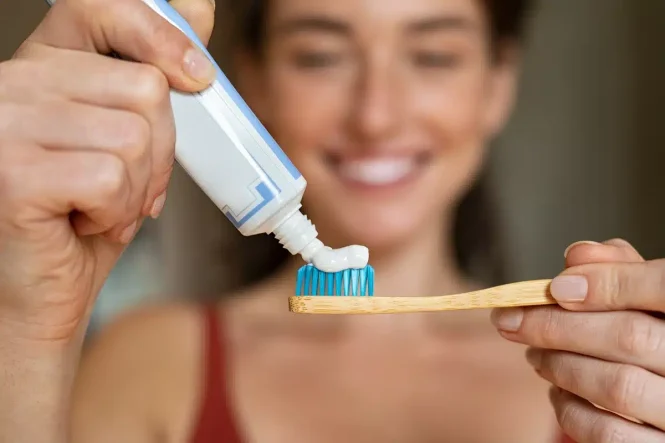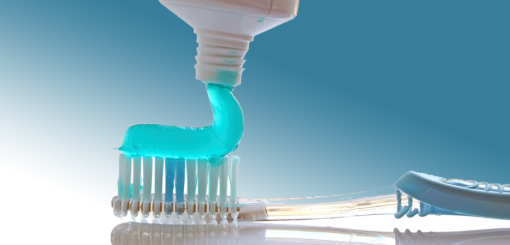

Dental care struggles are a common experience for many people. Why does our toothpaste never seem to work, leaving us with persistent issues and concerns? This comprehensive guide will explore the multifaceted reasons behind seemingly ineffective dental care and provide practical solutions to help you maintain optimal oral health. We’ll delve into the common causes of toothpaste ineffectiveness, explore various brushing techniques, and discuss the importance of professional dental care. Ready to take control of your oral health? Let’s begin!
Understanding the Factors Behind Ineffective Toothpaste
Common Misconceptions About Toothpaste
Many believe toothpaste is a magic bullet for oral health, but this isn’t entirely true. Toothpaste’s effectiveness is contingent upon several crucial factors, including the type of toothpaste used, appropriate brushing techniques, and the presence of underlying oral health problems. Simply choosing a toothpaste and brushing won’t guarantee optimal results if other factors aren’t addressed. Many users frequently fall victim to the trap of using toothpaste incorrectly, which directly impacts its efficacy.
The Role of Ingredients in Effectiveness
The formulation of toothpaste plays a key role in its effectiveness. Different types of toothpaste target different needs and problems. For example, whitening toothpaste often contains abrasives which can be harsh on the enamel of your teeth, making them more vulnerable to sensitivity. Choosing the right formula is essential in addressing dental care struggles effectively. Likewise, toothpaste for sensitive teeth usually contains ingredients that can help neutralize sensitivity, however, if the sensitivity is severe, consult a dentist immediately.
Identifying Underlying Oral Health Problems
Often, ineffective toothpaste is a symptom, not the cause, of deeper oral health problems. Conditions like gingivitis, cavities, or enamel erosion can hinder the effectiveness of any toothpaste, regardless of its formula. Addressing the root cause is crucial for achieving lasting improvements in dental care. Early detection and treatment are crucial for maintaining optimal oral health and preventing long-term complications.
Brushing Techniques and Toothpaste Application
The Correct Way to Brush Your Teeth
Proper brushing technique significantly impacts the effectiveness of toothpaste. Many people brush too hard or use incorrect angles, leading to ineffective plaque removal and further dental care struggles. A gentle, circular motion along the gum line, combined with proper angle application, is essential for proper cleaning. Overly aggressive brushing can damage gums and teeth, undermining the overall effectiveness of your chosen toothpaste. Focus on the gentle removal of plaque and food particles to achieve optimal oral hygiene. Using a soft-bristled brush is recommended to minimize damage.
The Importance of Flossing
Often overlooked, flossing is just as crucial as brushing in maintaining optimal oral health. Flossing removes plaque and food particles from between teeth, areas that are often missed by brushing alone. Consistent flossing prevents the accumulation of plaque and bacteria, which can lead to gum disease and tooth decay. Moreover, flossing combined with regular brushing helps achieve holistic dental care by addressing areas where brushing alone is ineffective.
Addressing Underlying Oral Health Issues
The Significance of Regular Dental Checkups
Regular dental checkups are crucial for detecting and addressing potential oral health issues early on. Dental professionals can identify signs of gum disease, cavities, or enamel erosion before they become significant problems. Early detection allows for timely interventions and prevents complications, avoiding more costly and time-consuming treatment procedures down the road.
Dietary Considerations
Diet plays a significant role in oral health. Consuming sugary and acidic foods and beverages can erode tooth enamel, making teeth more susceptible to sensitivity and increasing the risk of dental care struggles. Reducing consumption of sugary foods and drinks can significantly improve oral health and make toothpaste more effective. Consuming a balanced diet rich in calcium and fluoride-containing foods is ideal for strong teeth.
Choosing the Right Toothpaste
Understanding Different Toothpaste Types
Various types of toothpaste are available, each targeting specific oral health needs. Choosing the right type of toothpaste based on individual needs and preferences is crucial for effective results. Whitening toothpaste, for instance, may not be suitable for those with sensitive teeth. Research different types to ensure that you are using the right one for your individual situation. Don’t hesitate to consult with your dentist to determine the most suitable toothpaste for your specific needs.
The Significance of Fluoride
Fluoride is a key ingredient in many toothpastes. It strengthens tooth enamel, making teeth more resistant to cavities and other dental issues. Fluoride helps remineralize tooth enamel, protecting against acid attacks. Choosing a toothpaste with appropriate fluoride levels can positively contribute to optimal dental care.
Advanced Oral Hygiene Practices
Incorporating Mouthwash
Mouthwash can significantly complement brushing and flossing in maintaining oral hygiene. It helps rinse away food particles and bacteria, promoting a healthier oral environment. Choosing an effective mouthwash with proven ingredients is an important aspect of comprehensive dental care. Some mouthwashes can help reduce plaque build-up and bad breath. Use mouthwash as part of your routine to achieve enhanced oral care.
Understanding the Importance of Saliva
Saliva plays a crucial role in neutralizing acids and washing away food particles. Saliva also helps to remineralize tooth enamel. Dry mouth can increase the risk of dental problems. Consider using saliva stimulating products or remedies for dental health maintenance if experiencing dry mouth frequently.
In conclusion, achieving optimal dental care often requires a multifaceted approach that transcends the simple act of brushing and flossing. Understanding the nuances of dental struggles, like why toothpaste seems ineffective, is crucial for maintaining healthy teeth and gums. By addressing the potential underlying issues and adopting proactive strategies, individuals can actively combat dental problems and cultivate a lifetime of oral well-being. To get started, consult with a dentist to assess your individual needs and explore personalized recommendations. Regular checkups and professional cleanings can greatly enhance your overall dental health.